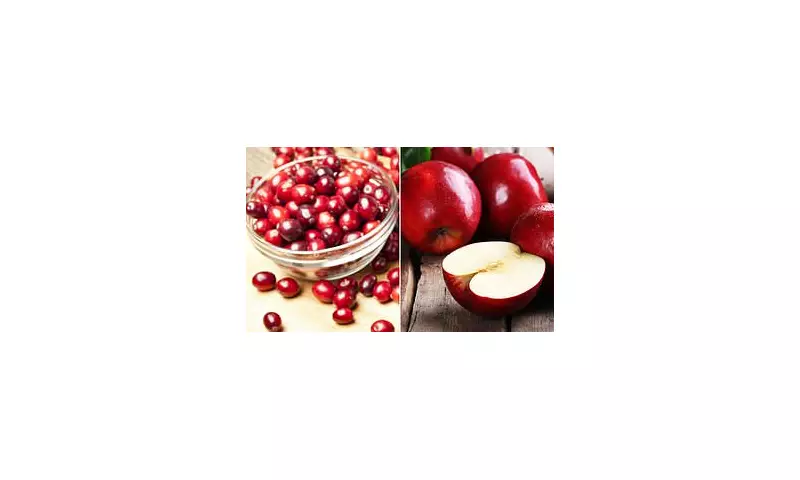
As supermarket aisles overflow with festive chocolates and mince pies, a leading nutrition expert reveals why we should be filling our baskets with seasonal British fruits instead of calorie-laden Christmas treats.
The Problem with Festive Snacks
Rob Hobson, registered nutritionist and author of The Low Appetite Cookbook, warns that traditional Christmas snacks pose significant health risks. "Festive snacks are often ultra processed and tend to be high in sugar, unhealthy fats and very low in nutrients," he told the Daily Mail.
Mr Hobson explains these treats are designed to be overeaten. "Because of their texture and flavour profile, they're incredibly easy to overeat without really noticing. They can also have a more profound impact on blood sugar levels, especially when eaten in larger amounts or without fibre or protein."
The Seasonal Fruit Solution
Instead of reaching for another mince pie, Mr Hobson recommends five winter fruits currently at their peak in Britain. Apples, pears, cranberries, blackberries and elderberries all offer substantial health benefits when consumed correctly.
"Pairing fruit with a source of protein or healthy fats such as yoghurt, nuts or seeds can help stabilise energy levels and make it more satisfying," advises Mr Hobson. He also notes that frozen berries are "absolutely fine and great for making winter compotes with orange rind and cinnamon."
Blackberries: The Fibre Powerhouse
Mr Hobson's personal favourite, blackberries, remain available in both fresh and frozen forms. "Blackberries are surprisingly high in fibre compared with other fruits and are packed with anthocyanins," he reveals, noting these deep purple pigments support heart, blood vessel and brain health.
With only 32 calories per 100g serving, blackberries contain 5.1g of sugar, 3.1g of fibre and 0.9g of protein. The nutritionist recommends stirring frozen blackberries into warm porridge: "The heat softens them and brings out their natural sweetness."
Pears: Digestive Health Champions
The soft, juicy fruits are particularly beneficial for digestive issues that often arise during seasonal changes. "Pears are a good source of fibre especially when you include the skin," says Mr Hobson. "This makes them excellent for digestion and gut motility."
Containing approximately 41 calories per 100g, pears provide vitamin C, potassium and folate - nutrients vital for immune function, heart health and nervous system operation.
Apples: Gut Health Supporters
With over 2,000 varieties available in the UK, apples offer year-round variety. "Apples are a great winter staple thanks to their soluble fibre, particularly pectin," explains Mr Hobson. "Soluble fibre helps to nurture your gut bacteria and may support healthier cholesterol."
A 2019 study found that eating two apples daily significantly reduces LDL "bad" cholesterol levels. Granny Smith apples are particularly rich in beneficial proanthocyanidin compounds.
Cranberries: UTI Prevention Experts
Best known for their urinary tract infection prevention properties, cranberries contain unique polyphenols called proanthocyanidins (PACs). "These compounds help prevent certain bacteria including E. coli from sticking to the urinary tract," Mr Hobson confirms.
A 2024 review demonstrated that cranberry juice consumers experienced 54% fewer UTIs than non-consumers. Beyond urinary health, cranberries provide valuable vitamin C and manganese for immune support.
Elderberries: Immune System Boosters
The final recommendation comes with an important warning. Elderberries must never be eaten raw as they contain naturally occurring lectin and cyanide that can cause serious food poisoning.
"Elderberries have a long history in traditional winter remedies," says Mr Hobson. "Modern research suggests they may help reduce the duration and severity of cold symptoms thanks to their antiviral and immune-modulating properties."
When properly cooked into jams, juices or teas, elderberries provide valuable vitamin C and anthocyanins with antioxidant and anti-inflammatory benefits.
Making the Healthy Switch
The NHS recommends adults consume at least five 80g portions of fruit and vegetables daily. Mr Hobson suggests eating fruits raw when possible, keeping skins on to maximise fibre and antioxidant content.
"Fresh, stewed or baked fruits all work well," he concludes, offering hope for those seeking healthier alternatives to traditional Christmas indulgence. By incorporating these seasonal fruits into daily routines, Britons can support their immune systems and gut health throughout the winter months.






